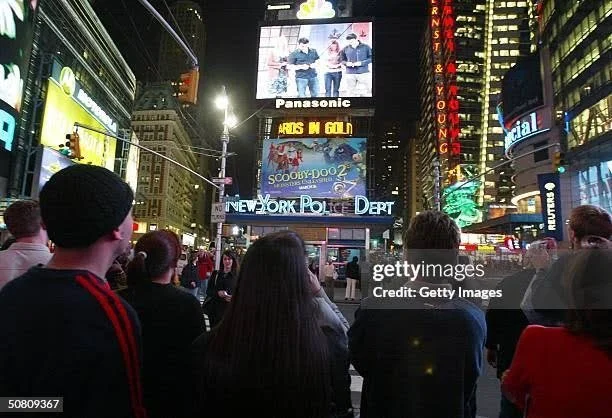Streaming Killed The Art of Television
Colette Paterson ‘28
Graphic by Colette Paterson ‘28
Throughout time, humans have relied on television to take them away from the depressing pits of the world. However, in this current day and age, television seems to be the exact thing depressing me. With a generation obsessed with nostalgia and references to the past, I find myself yearning for a specific past I miss, the days of cable television.
Although it had its faults, the days of cable television were quite a time. The rush of running to the bathroom on a commercial break, watching a live premiere to find out who A is in “Pretty Little Liars” and when you had to set the DVR up to record if you were going to miss an episode. Everything is so accessible now. Not to say that it is overall bad, but I miss the days when television was community based. Like coming into school when everyone had been watching the VMA’s the night before and saw Nicki Minaj confronting Miley Cyrus on live TV or earlier in the 90s and 2000s when finale episodes used to premiere in Times Square for crowds to gather and experience together. Even when it comes to reality or competition style shows, our first “American Idol” was Kelly Clarkson and we haven’t been a proper nation since.
A crowd of New Yorkers watch the "Friends" finale being broadcast live on the Astrovision video screen in Times Square May 6, 2004 in New York City. Photo via Getty Images
We get a taste of the sweet life anytime the internet attaches itself to a show and decides that it is the single most important piece of media for the time being. For example, “The Summer I Turned Pretty” connected thousands of people regardless of age this past summer. It was one of the only recent instances I can think of where people were actively engaged in conversations about the same show. Although we have so much access to more information, algorithms end up streamlining us into our own unique sets of interests. While I appreciate my ultra specific algorithm, (where else would I get curated results of “Love Island” think pieces paired with Sue Sylvester’s best moments compilations?) I do believe this level of refining our media severs a connection between the general public and what used to be general media everyone watched.
Some of this is partially due to the nature of television that has greatly changed over the years. Where there used to be a pilot season for TV shows and 25 episode long seasons, we now have swapped that style for 8 episode seasons that have at least three plus years between release. With streaming services fast-paced nature and shows getting cancelled before they can even begin, it creates a hellscape for anyone remotely creative working in the industry. I don’t blame the recent shows for lacking connection, how do we expect writers to build these worlds and character arcs with an episode count below ten? And the fact that if their show doesn’t hit the right market on TikTok their work could be entirely scratched? It is not an ideal environment for those making the art or for those consuming it.
Even for television watchers the sheer price of what it costs to obtain multiple streaming platforms is insanity. Back when Netflix was a mailing service there was a layer of newness and coolness that made it seem fun and futuristic. Flash forward to 2025, most college students cannot even be on their parent’s Netflix account as it boots anyone off in a different state than the main household. A future of streaming that was advertised as the best thing is now otherworldly expensive just to see a program with no advertisements — which was also supposed to be the main point of streaming, by the way.
It seems like along this push for technology to advance those behind the driving force forgot the one thing they needed: to engage and connect with audiences. With such short seasons there isn’t much time to sit with the media we are consuming and if we do connect with it, there is a large chance it won’t be picked up for a second season unless it’s an immediate cult-classic. How are watchers supposed to relate to characters if we don’t even get to see silly filler episodes on Halloween, Thanksgiving or Christmas? It is cruel and unusual punishment to subject the general population to no special holiday episodes in sitcoms anymore.
Image: NBC via Getty Images
With the recent wave of fastpaced media getting churned out I hope we can return to a place of actual creativity and time devoted to the craft. As mentioned, there is a reason why the youth clings to shows of the past. Gilmore Girls, The O.C., Dawson’s Creek, Gossip Girl and Friends all have one thing in common — they give the viewer time to resonate and connect with the content they provide. I would gladly take 25 episodes a season that are each 45 minutes long compared to the new age 8 episode seasons with hour long episodes. Until I am graced with the return of longevity in sitcoms, I will continue to fight for my cause. Bring back my beloved television.



